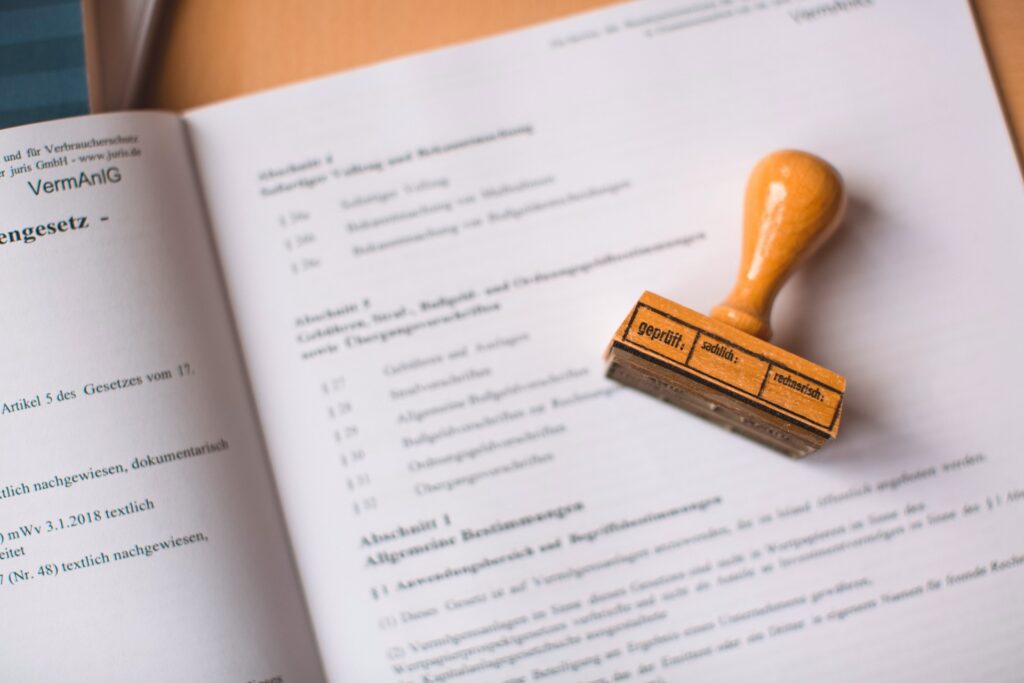Notaries play a crucial role in legalizing and authenticating various documents, ensuring their validity and preventing fraud. However, it’s essential to recognize that not all documents are eligible for notarization. But exactly what documents can a notary not notarize?
Understanding the limitations on what documents a notary cannot notarize is crucial to avoid legal complications and uphold the integrity of the notarial process. In today’s article, we’ll talk about this subject and clarify what documents a notary cannot notarize.
You may also like: Can a notary public officiate a wedding?
What documents can a notary not notarize?
Let’s get straight to the point:
1) Personal relationship documents
Notaries are typically prohibited from notarizing documents that involve close personal relationships. This includes documents such as wills, divorce papers, and prenuptial agreements. The rationale behind this restriction is to prevent conflicts of interest and ensure impartiality in the notarial process.
One primary reason for this prohibition is to safeguard against potential conflicts of interest that may arise when notarizing documents involving close personal relationships.

In cases such as wills, where the distribution of assets among family members is a sensitive matter, notarizing by someone with a personal connection to the involved parties could compromise the objectivity and impartiality of the notarial act.
By placing restrictions on notarizing documents involving close personal relationships, regulatory authorities aim to ensure that notaries remain neutral and unbiased observers, upholding the principles of fairness and justice.
This prohibition contributes to maintaining public trust in the notarial system, as individuals can be confident that their documents are being authenticated by an impartial and objective professional. In addition to preserving the integrity of the notarial process, these restrictions serve to protect notaries themselves from potential legal and ethical challenges.
2) Documents with blank spaces
When presented with a document that contains blank spaces intended to be filled in at a later time, a diligent notary may exercise discretion and refuse to proceed with the notarization.
This cautious approach serves as a vital safeguard against potential alterations or fraudulent activities that could compromise the document’s reliability and legality. By refusing to notarize incomplete documents, notaries contribute to maintaining the trust and credibility associated with notarized paperwork.
Notaries are also trained to scrutinize documents for any signs of irregularities or potential discrepancies. This ensures that the information presented in the document accurately reflects the intentions of the parties involved, and it minimizes the risk of fraudulent alterations post-notarization.
3) Documents with incomplete or inadequate identification
For a document to be notarized, the person signing it must provide proper identification. Notaries are unable to notarize documents if the signer fails to present adequate identification or if the notary is not satisfied with the presented identification.
Typically, accepted forms of identification include government-issued photo IDs, such as driver’s licenses or passports, which serve to validate the identity of the signer. The notary is always entrusted with the responsibility of scrutinizing these documents to ensure they are current, unexpired, and accurately reflect the individual’s personal details.
Notaries are not merely tasked with confirming the identity of the signer; they are also obligated to assess the signer’s willingness and understanding of the document being notarized.
This scrutiny ensures that the individual is not coerced or misled into signing a document against their will, reinforcing the principle of informed consent in the notarization process.

4) Documents with missing signatures
One of the primary responsibilities of a notary is to witness the signing of a document, ensuring that the signatures affixed are genuine and made willingly by the involved parties. The notary is bound by a strict rule that prohibits them from proceeding with the notarization if any required signatures are missing.
This rule serves as a safeguard to guarantee that all essential parties are present and accounted for in the notarized document. By adhering to this requirement, the notary helps prevent potential disputes or challenges related to the document’s validity in the future.
5) Documents outside the notary’s jurisdiction
Notaries are granted their powers and responsibilities by state or regional governments, and their authority is tied to the geographical limits specified by the issuing jurisdiction. These limits are in place to ensure that notaries adhere to the laws and regulations governing their practice within a given area.
Consequently, seeking notarization services beyond these authorized boundaries may not only jeopardize the validity of the document but could also lead to legal consequences for both the notary and the parties involved.
To safeguard the integrity and legality of a notarized document, it is imperative to confirm that the notary is legally permitted to operate within the specific location where the document is being notarized.
This verification process involves checking the notary’s commission details, which typically include information about the jurisdiction they are authorized to serve. Individuals seeking notarization services should be proactive in confirming the current status of the notary’s commission and ensuring it aligns with the geographical area in which the document is to be notarized.
This attention to jurisdictional details becomes especially crucial in cases where documents have cross-border implications or involve parties located in different regions.
Failing to comply with these jurisdictional requirements may not only result in the document’s invalidation but could also lead to legal complications that may hinder the intended purpose of the notarization.

Look for the help of a notary near you!
Notaries serve a vital function in legalizing documents, but it’s essential to be aware of the limitations when thinking “What documents can a notary not notarize?”. Understanding these restrictions helps protect the public from potential fraud and ensures the credibility of notarized documents.
If you’re uncertain about whether a specific document can be notarized, it’s advisable to consult with a notary or legal professional to avoid complications down the line. In these cases, the services of a mobile notary can help you tremendously.
Mobile notaries go right where you are and help you clear any doubts about documents and legal procedures. This can be especially handy in emergencies or in situations where you can’t afford to leave the premises.
And if you are in the Orlando and Central Florida region, we here at Mobile Notary Orlando are ready to help you with anything you need 24 hours a day, any day of the week. So get in contact right now through our number (407) 768-4272 or email dossantosnotary@gmail.com so we can start helping you as soon as possible.






